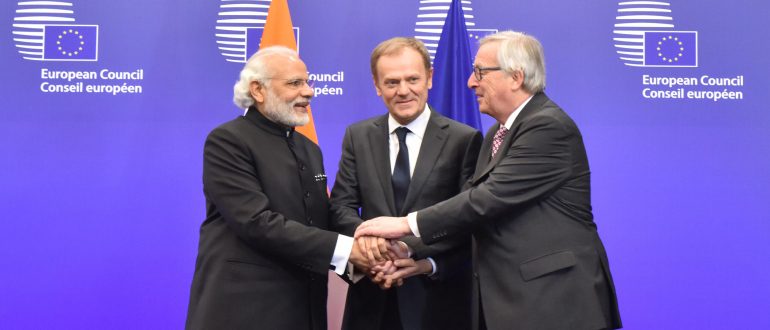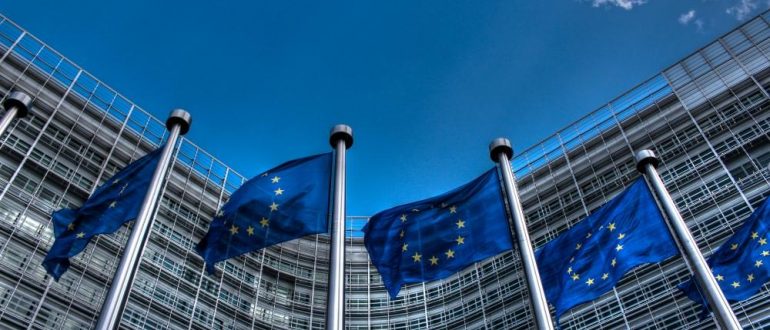The EU’s poor record in promoting democracy on the Arabian Peninsula
The populations of Gulf Cooperation Council (GCC) states have often been depicted as “politically apathetic”. The first paragraph of this essay stresses the opposite by outlining public demands for political change in the region as well as the unwillingness of political authorities to grant concessions. The essay then proceeds to criticise the EU’s democracy promotion in the Middle East and North Africa (MENA) as inconsistent, largely neglecting the GCC states both historically and in modern days. The last paragraph makes the case for a unified EU approach by establishing a comprehensive policy framework in order to support democracy promotion in the region.
The Arab Spring in the GCC states
Many influential families in the GCC states, such as the Al-Khalifa in Bahrain or the Al-Sabah in Kuwait, have ruled for over two-hundred years. These ruling families managed to consolidate power by sharing the revenue of their enormous oil wealth with citizens. In these rentier states demands for political concessions were comparably rare. In the context of the Arab Spring, however, movements emerged with demands for a “fundamental realignment of the relationship between citizens and the state”. In Saudi Arabia, women engaged in public protest to demand social reforms – for instance the right to drive. In countries such as Kuwait and Bahrain protesters challenged the position of their political leaders Sheikh Al-Sabah and King Al-Khalifa demanding new arrangements for power sharing.
The governments’ reactions to publicly-expressed discontent were dissatisfying. Regimes resorted to their usual practice of distributing financial gifts as in the case of Qatar, where the Emir granted 60 to 120 per cent pay rise to civil servants. The Saudi government promised a pay-out of US$ 130 billion going mostly to the religious and security establishment. In Bahrain, the government reverted to outright violence and repression. The Bahrain Independent Commission of Inquiry revealed the systematic torture and human rights violations of the Bahraini government. The Arab Spring in the GCC states highlighted several important issues: Firstly, the scale of the movements was unprecedented both in terms of the scale of popular mobilization and in the spread throughout the region and across borders. Moreover, protesters demanded genuine political change despite the massive oil-wealth, contradicting the key premise of the rentier state theory. Furthermore, the regimes of the GCC have clearly demonstrated their unwillingness to engage in democratic reform by reverting to violence and financial promises. The European Union is compelled to acknowledge these developments and to react to them by supporting popular strive for democracy promotion.
Inconsistencies in EU democracy promotion in the Middle East and North Africa
The EU’s efforts in terms of democracy promotion in the Middle East and North Africa are strikingly inconsistent ranging from committed institutionalised engagement with the Southern Mediterranean, to complete neglect of GCC states. In the pre-Arab Spring context, frameworks such as the European Neighbourhood and Partnership Instrument (ENPI) were initiated to engage with countries of the Southern Mediterranean. The ENPI is an effective programme, which aims at “supporting democratic transition and promoting human rights”, using an annual operational budget of 1.6 billion Euros.
The Gulf region is dealt with by the Development Cooperation Instrument (DCI) which has an annual budget of 1.4 billion. The programme, however, applies solely to Iran, Iraq and Yemen which are, in the context of the DCI, considered to be Gulf nations. This essentially means that no EU democracy promotion projects work in GCC states which have been affected so significantly by popular demand for more democracy. Hence, even before the Arab Spring context the EU “turned a blind eye” to the region in terms of supporting civil society and democratisation efforts.
Following the series of unprecedented poplar uprisings in the MENA region, Europe’s immediate Southern Mediterranean neighbourhood has absorbed most attention of policy-makers. In the aftermath of the Arab Spring, two EU policy documents have been published labelled “A partnership for democracy and shared prosperity with the Southern Mediterranean” and “A new response to a changing neighbourhood”. While these policy-outlines towards the region did represent a significant contribution to support democratisation, it is striking that neither of them made any reference to Gulf States despite the demonstrations in the region being remarkable in scale and meaning. Contradicting the approach taken in the Southern Mediterranean, where immediate measures such as support for civil society and diplomatic pressure were used to facilitate democratisation, no similar efforts have been made with regard to the Gulf States, weakening the EU’s reputation and credibility as a promoter of democracy and human rights considerably.
Democratisation efforts were even indirectly undermined by European member states. On June, 27th 2011 the German Federal Security Council agreed on an arms sale of 270 modern tanks to Saudi Arabia despite the previous engagement of Saudi tanks in neighbouring Bahrain to encounter demonstrations. Likewise, the UK issued an export license to Bahrain for “training hand grenades” worth 70.000 GBP followed by licenses for “body armour, gun silencers and weapons sights”. Analysing the scope of the ENPI and DCI programmes as well as the EU’s and its member states behaviour after the Arab Spring leaves the impression that the EU’s democracy promotion towards the Middle East is characterised by a clear “divide of the Mediterranean versus the rest”. The engagement with Gulf States remains strikingly disconnected from its Mediterranean policy.
Making the case for a broader Middle Eastern policy
The Gulf region presents an attractive market for exports. The trade in goods has sharply increased from 57.1 billion of euros in 2009 to 72.2 billion of euros in 2010. The region is Europe’s fifth largest export market which is remarkable considering that the region consists of a mere 42.5 million inhabitants. European countries are increasingly dependent on investment from the Gulf region. Countries such as Qatar use their enormous wealth to invest in European business as it was epitomised recently by investment in major oil- companies such as Royal Dutch Shell and Total.
Strategic concerns are also paramount. Saudi Arabia is the closest Western ally in a region which is of vital importance in terms of security and Bahrain is a key stopping point for the UK’s Royal Navy on their way to Afghanistan. Moreover, the Gulf States possess vast oil reserves, with the six GCC countries containing about 40 per cent of all global reserves. Thus, the EU’s regional approach appears to be grounded in narrow defined security and economic interests. However, given the events of the Arab awakening and the increased participation of Gulf States in global governance it is now imperative to expand issues addressed, such as democracy promotion, through a policy framework akin to the ENPI. Given the wealth of the Gulf region, “development cooperation has not been a major feature in EU-GCC relations” limiting the EU’s ability to leverage and to exert pressure on the regimes in question.
New policies need to be implemented: Firstly, the EU is dependent on the unanimous support of its member states in order to advance coherent and effective measures. The Gulf region, however, represents an area of direct economic competition among European states resulting in internal EU divisions. European countries ought to use the European Union as a way to unify their foreign policies towards the Gulf and seek to exercise what influence it has to support civil society and demands for increased political participation. Secondly, it is necessary to bring GCC states into an “institutionalised partnership and framework of cooperation” which will help in facilitating and influencing reform dynamics. Taking the ENPI as a model, a broader foreign policy ought to be established addressing precise aspects of democracy such as press censorship, human rights and civil society issues. It is undeniable that EU member states depend on Gulf States for investment, security and trade. Likewise, however, GCC states depend on the EU’s support for increasing their influence in global governance. Moreover, European investment will become more important, especially in countries which will have to make the transition from rentier states to more diverse economies such as Bahrain. According to the Treaty of Maastricht, the EU is obliged to “promote human rights and democratic principles” in countries it deals with. Thus, the EU should seek to exercise what influence it has to rectify the insufficient record of democracy promotion with GCC states.
Conclusion
Given the stable economies of GCC states, their populations were often seen as politically inactive. The Arab Spring, however, sparked demands for social and political change in the region. Governments responded to these demands with financial gifts as in Oman, superficial reforms as in Saudi Arabia or coercive repression as in Bahrain. The EU has failed to adequately promote democracy in the GCC states, before and after the Arab Spring, interacting with GCC states only in security and economic affairs. While much has been done to promote democracy in the Southern Mediterranean, the Gulf region has been marginalised, emphasizing the structural inconsistencies in democracy promotion in the Middle East. European member states should use EU institutions to define a collective and institutionalized approach in expanding its interaction with GCC states beyond strategic and economic aspects and support popular demand for more democracy promotion. Only then can the negative regional record of EU democracy promotion before and after the Arab Spring be rectified.
Benjamin Ledwon studies History and International Relations at the University of Exeter (UK). His academic interest focuses on democratisation, global governance and the role of the EU in international relations.



